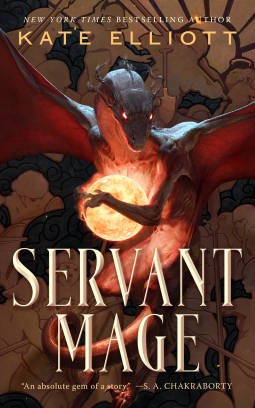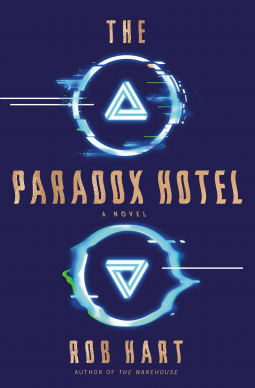The Last Graduate, by Naomi Novik (Ballantine)
I’ve loved Naomi Novik’s work since discovering her “Napoleonic
Wars With Dragons” series (Temeraire). It seemed to me that with each
book, both in that series and more recent publications, she has grown in skill
and depth. I read the first two volumes of “Scholomance” back-to-back. It’s
fair to say I inhaled them, they were so good.
I’ve been reading a bunch of magical school stories
recently, and the Scholomance books redefine the genre. Many of the other books
use a boarding school-like setting, whether it’s Hogwarts or the school of
magical juvenile delinquents in Promise Me Nothing, by Dawn Vogel or the
more troubled environment of D. R. Perry’s Sorrow and Joy. The schools
and their teachers are charged with educating (and sometimes reforming) their
students. Not so the Scholomance. Created by elite wizards to protect their
adolescent offspring from being the prime targets of supernatural nasties (“maleficaria”),
the school exists in a pocket carved out of the void, with only a narrow access
to the outer world. There are no teachers, mail service or messengers except to
a limited degree the incoming freshman classes, and the school may be sentient,
trying to do its job regardless of the cost. Students take their classes as
seriously as if their lives depended upon them, which they do. At the end of
the senior year, the doors of the graduation hall open and all the incoming and
resident nasties flood in, forming a gauntlet that only a few students survive.
Even so, their odds are better than if the kids had stayed at home.
Into this world comes Galadriel (who hates her name, so
she’s “El”), daughter of an unrepentant hippie witch who lives in a yurt in
Wales (wrap your mind around that!) and gives away her best spells for free in
a world of precisely measured tit-for-tat. A prophecy has marked El as destined
for destruction and dark magic, and she’s become a self-isolating pariah noted
for her uncensored rudeness. When heroic Orion Lake keeps saving her life, she
can’t get rid of him. Gradually, they become friends (and more than friends). Much
to her amazements, El gathers together a small team of fellow students, since cooperation
and coordination will provide their only hope for surviving the graduation
ordeal. At the end of their junior year, El and her friends joined forces with
the graduating seniors, with surprising success.
Now it’s their turn, as graduating seniors. El has grown
from a grouchy recluse to a young woman of courage and compassion, a born
leader. She can inspire, cajole, and persuade the other seniors to work
together to save the entire class, but that will leave successive generations of
students to face the same heavy mortality. El wants to save them all and put an
end to the yearly massacre. She comes up with a plan to graduate every single
student, culminating in a mass extinction of the maleficaria. Her scheme will take every
scrap of ingenuity, persuasion, and sheer magical power she possesses. To make
matters worse, the school itself seems to have turned against her…
Novik combines a different and much grittier take on the “magical school” trope with a compelling central character who changes and grows. El faces her fears and insecurities, as well as the temptation of evil sorcery, to become a passionate and compassionate leader. Her voice drives the movement of the books. I can hardly wait to see what impossible-seeming tasks she tackles next!









